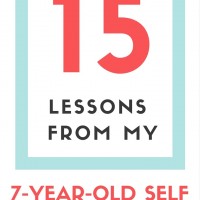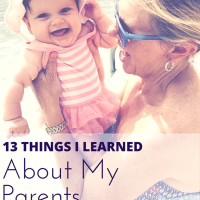
Over the summer I got really into Netflix documentaries and was so happy to have “Miss Representation” recommended to me. This 2011 documentary delves into America’s society of under-represented women in dominant, influential roles while pointing out the media’s limited, yet powerful, portrayal of women. Clearly these notions about inadequate and controlled depictions of women is nothing new, but I didn’t realize just how deep this issue runs. As you know, this is a topic I am very passionate about, and I was very troubled after watching this and urge all of you to watch it with your friends, family, boys, girls, and men alike.
Change will only occur from awareness, and awareness is only effective if everyone cares about this issue.
This film becomes really personal and connects to the viewer through intertwined footage of teenage girls’ stories along with interviews with women such as Katie Couric (love her), Condoleezza Rice, Gloria Steinem, and Rosario Dawson. All of these women enforce the message that “you can’t beat what you can’t see,” and isn’t that so true? Why are people comfortable talking about racial discrimination productively yet gender issues are not taken so seriously? You can’t beat what you can’t see.
So open your eyes.
Open Your Eyes: Gender discrepancies in America- an issue for everyone
Here are some startling statistics to help you start seeing the issue:
Media
1. American teenagers spend more than 10 hours a day consuming media, most of it filled with content that objectifies women and distorts their bodies.
2. 53% of 12 year old girls feel unhappy with their bodies, 78% of 17 year old girls feel unhappy with their bodies and 65% of women and girls have an eating disorder. Do we see a connection between #1 and 2?
3. Women hold only 3% of authoritative positions in the mainstream media…hmmm…I wonder why girls and women are portrayed so artificially…
4. Only 16% of protagonists in film are female. Only 7% of film directors and 10% of writers are female.
5. Between 1937 and 2005 there were only 13 female protagonists in animated movies. The female characters in G rated movies are just as likely to wear revealing clothing as in R rated movies.
6. More than 70% of women on TV are in their 20s and 30s. “A male dominant system values women as child bearers so it limits their value to the time that they are sexually and reproductively active and they become much less valuable after that.” – Gloria Steinem
7. Women and girls are the subject of less than 20% of news stories. “When a group is not featured in the media… it is called symbolic annihilation.” – Martha Lauzen, Center for the Study of Women in TV and Film
Leadership
8. Women make up 51% of the population and only 17% of Congress (“Women in National Parliament, 2011)
9. The United States is ranked 90th in the world in terms of the number of women in national legislatures (“Women in National Parliament, 2011). Wait, what? The all-powerful, progressive USA is ranked 90th?!
10. 67 countries in the world have had female presidents or prime ministers. The United States is not one of them. Cuba, China, Iraq and Afghanistan have more women in government than the US does. Please tell me you’re as shocked as I am.
Take a moment to look these over again and really let them sink in. What startles you the most? As a high school English teacher, I was going through my curriculum and noticed a troubling gender disparity from the authors and stories my classes read. Basically all of the texts we read are from male authors and the stories have male protagonists and heroes. This might not be the case for everything we read, but if we read a female author or have a lead female character, it’s the exception, not the norm.
Girls and women are expected to be interested in male and female-dominated stories and movies equally, while boys and men are really only expected to have interest and connect with male-dominated storylines. This sends the wrong message to girls, boys, men, and women that female leads in books and movies only has a place with a female audience. It’s time to change!
Hopefully by spreading the word and making gender issues as important and productively discussed as other societal disparities, change will occur.
Please feel free to comment on this post, listing your thoughts, comments, opinions, and your favorite stories featuring a strong female lead. How else can we start seeing this issue to beat it?
If you want to check out the film, learn about this issue, or get involved, please visit http://goo.gl/7HLfO9.
Looking forward to your ideas.














